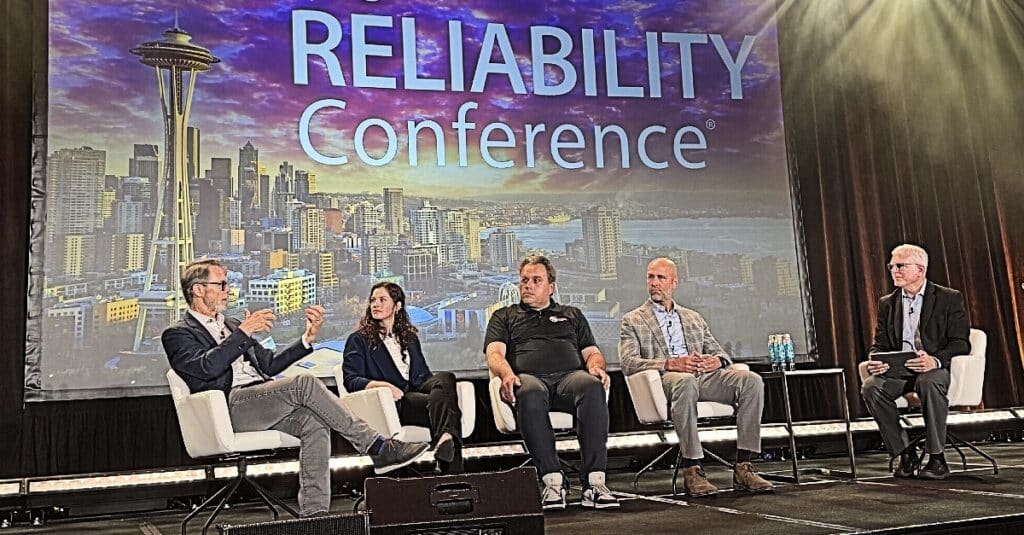
It’s hard not to read a manufacturing-related news story these days without the phrases “supply chain” and “a perfect storm” … So here’s a round-up of some of the stormier press from the last month that caught Augury’s collective eye – and why it mattered. Plus, we wonder how supply chain guru Santa Claus is dealing with current realities.
Supply chain woes continue. Everyone has an opinion. But everyone also agrees: it’s caused by a “perfect storm” of chaos.
Here’s one example: “Britain’s supply chain meltdown, much of which relates to Brexit, is leading to gaps on retailers’ shelves and price rises, and has prompted warnings of potential shortages of everything from Christmas trees to festive alcohol,” according to ‘“Perfect Storm” For UK Manufacturers As Costs, Credit and Cash Crunch Looms’.
Does this mean that the Brits will only have non-festive alcohol this holiday season?
Meanwhile, the satirical news site The Onion is also getting in on the action. In ‘What’s Causing Global Supply Chain Issues?’, they put forward a variety of causes. These include the funny (“Global stores of cardboard boxes got wet, and now they’re gross.”) and the more plausible (“Lingering effects of outsourcing production to countries U.S. won’t share vaccines with.”)
No More ‘Beautiful Stability’
“The system of getting things from A to B is broken. Fixing it will involve rethinking how pretty much everything moves,” according to ‘Good Luck Trying to Fix the Supply Chain Crisis’.
“A perfect storm of global issues has combined to break the just-in-time supply chains that keep the world going. From the Ever Given getting stuck in the Suez Canal to COVID-19 changing the way we shop, the world is also contending with China’s rapid shift away from coal power. In response, a system that used to run relatively smoothly is now in tatters.”
For decades, the retail industry has relied on what an expert calls “a beautiful stability.” “Retail grew two percent every year; retailers would publish two catalogs of new products every twelve months, allowing stores to buy their stock in advance.”
“There was no resilience built into the system,” says the expert. “That complacency was borne out of years of success.” But with, for example, half of Victoria’s Secret’s lingerie products currently stuck at sea, that complacency has finally snapped.
The answer is “a wholesale reworking of how the supply chain operates – one compared to the way the internet’s protocols were first drawn up in the late 1960s. It was made to be nuclear strike-resistant. Similar slack needs to be built into the supply chains of the future.”
Chips, anyone?
“A pandemic problem led to a $52 billion plan to help chipmakers like Intel and an overhaul of the global economy. A new $17 billion Samsung fab in Texas could benefit,” according to ‘How the global chip shortage is boosting US manufacturing’.
“The chip industry’s new course is part of what some call the decoupling, which at least to some degree is pulling the Chinese and US economies apart. No one expects supply chains without links overseas, but the chip shortage response definitely has a nationalist flavor.”
“And there’s been more than a little freaking out that the US military is so reliant on overseas companies. As a 250-page White House report put it in June: ‘Semiconductors … are fundamental to the operation of virtually every military system, including communications and navigations systems and complex weapons systems such as those found in the F-35 Joint Strike Fighter.’”
“Five years ago, people said we were boring,” said one industry leader. “The world has really realized this is now an essential part of what people do.”
“The term that encapsulates the desired outcome? Supply chain resiliency. That means flagging problems sooner, making the government and private sector more adaptable, and building supply buffers of inventory that cushion supply chain shocks. Overall, that would reduce the likelihood and severity of supply chain surprises.”
“The industry is begging for de-risking.”
What Would Supply Chain Guru Santa Do?
If there’s someone who can deal with this perfect storm of perfect storms, it’s supply chain guru Santa Claus. What would this master of distribution do?
Some would say he would just seek short-term safety in doubling his inventory of both raw materials and finished goods – like most companies are doing, according to a recent survey by McKinsey.
But our guess is he’ll actually go for a more future-proof and resilient approach by applying the proper tech to work smarter. In fact, we expect a call from his elves at any moment.
Happy Holidays! Make it a festive one!




